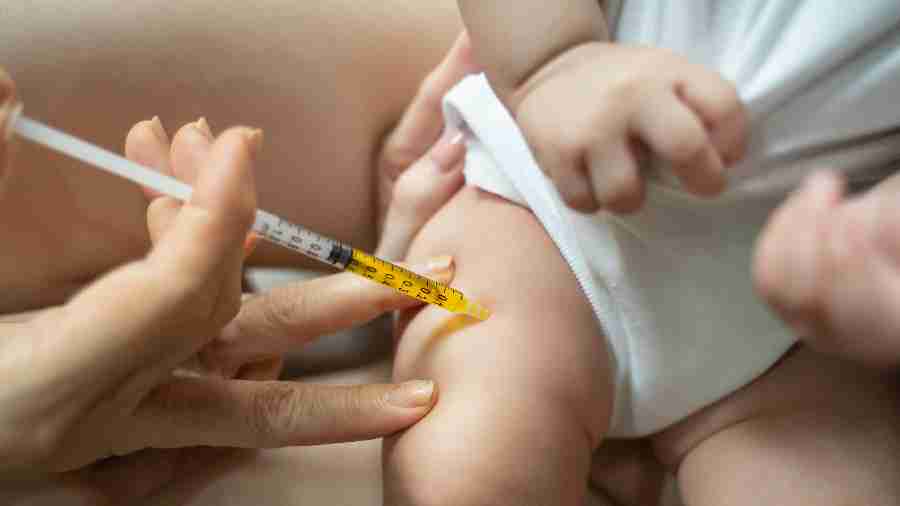An additional dose of injectable polio vaccine has been introduced in West Bengal as part of the universal immunisation programme (UIP) for children in India.
The dose is given when a baby turns nine months, said an official of the Kolkata Municipal Corporation, which administers the vaccines in Kolkata. This is being followed across the state.
This extra dose will be given besides the existing oral and injectable polio doses that have been part of the UIP, administered free from government-run centres, for sometime.
There were four oral doses and two injectable doses before the additional third dose was introduced in January.
Doctors said across the world, countries that have eradicated polio have taken recourse of the injectable polio vaccine. The oral polio vaccine, which is made from a live virus, has the possibility of leaving the virus in the environment, which can then infect someone.
“The live virus can circulate in the environment if it comes out during defecation by a child. This live virus can then infect someone if there is contamination of water or food sources,” said an official of the health department.
But the injectable polio vaccine, which is made from an inactivated virus, does not leave that possibility. Besides, the absorption of the injectable vaccine is better, said doctors.
“The oral polio vaccine leaves a possibility of new infection since it is made of live virus. When the target is the eradication of polio, we have to slowly shift to administering only the injectable polio vaccine, which is made from an inactivated virus. Across the world, all countries that have eradicated polio have used the injectable course,” said Jaydeep Choudhury, a paediatrician and a professor at Institute of Child Health, Kolkata.
That doesn’t mean that the oral polio vaccine is inferior, said Choudhury.
The oral polio vaccine has been able to achieve its target in India. The World Health Organisation has declared India as a country that has eradicated polio.
But now, the coverage of the injectable vaccine has to be increased and the introduction of the third dose is a step in that direction, said Choudhury, who was a member of the vaccine committee of the Indian Academy of Paediatrics.
The website of the National Health Mission says that the injectable polio vaccine was introduced in November 2015 in select states before being introduced across the country.
Before the third dose of injectable polio vaccine was introduced in January, there were two injectable doses that were given at 6 weeks and 14 weeks from birth.
Now, the third dose will be given when the child turns nine months.
“The third dose will give enhanced protection against the disease,” said Choudhury.
Children taking the polio vaccine from the private sector — which follows the recommendations by the Indian Academy of Paediatrics — are given the oral polio vaccine only once, which is immediately after birth.
“All the other three doses— at 6 weeks, 10 weeks and 14 weeks from birth — are injectable polio vaccine doses. There is another booster dose, also injectable, administered when the child turns one-and-a-half years old,” said a doctor.
